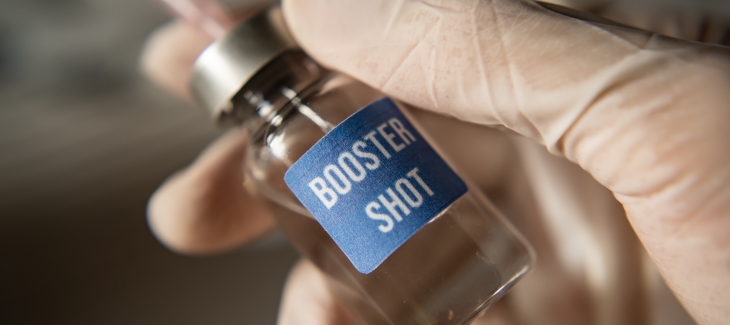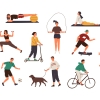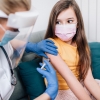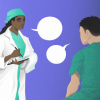- General
- Telehealth
- Career Trends
- Featured
- Legal
- News and Events
- Technology
- How To
- Procedures
- Training
- Allied Health Industry
- Allied Health Practitioners
- Employer News
- Candidate News
Recent Posts
Most Popular
More than 20M Americans are eligible for Pfizer-BioNTech booster shots. Should you get one?

More than 20 million Americans are eligible for COVID-19 booster shots from Pfizer-BioNTech, and 40 million more will have access once they're six months past their second shot.
Although those who got other vaccines are not yet eligible, boosters may soon be extended to those who received the Moderna and Johnson & Johnson shots.
Protection from the initial shots may be fading for people ages 65 and older and for people living in long-term care facilities, many of whom got their initial shots early this year
Boosters are also recommended for younger people at risk for serious disease, which covers everyone with diabetes or obesity – the majority of Americans.
People whose jobs put them at increased risk of being exposed to the virus and who are 18 to 64 years of age can get the booster.
That includes health care workers, teachers, grocery workers and those who work in homeless shelters or prisons, acting FDA Commissioner Janet Woodcock said last week.
For people in these categories, boosters are available – and free – but not mandatory. A two-dose series of the Pfizer or Moderna vaccines, or one dose of the Johnson & Johnson vaccine, still counts as fully immunized.
Friday, President Joe Biden urged eligible Americans to get the boosters.
"If you got the Pfizer vaccine in January, February and March of this year and you're over 65 years of age, go get the booster," he said. "Or if you have a medical condition like diabetes or you're a front-line worker, like a health care worker or a teacher, you can get a free booster now."
Get a Pfizer booster? That 'depends a lot on where you live'
Boosters raise the level of protection, but even those who don't get one are well-protected against COVID-19.
"The bottom line is if you're fully vaccinated, you're highly protected from severe illness, even if you get COVID-19," Biden said Friday morning. "In fact, recent data indicates there's only one confirmed positive case for every 5,000 fully vaccinated Americans per day."
Boosters offer an additional push of protection. The recommendations mean many will have to make their own decisions about whether to get a booster, in consultation with their health care professionals.
A Centers for Disease Control and Prevention committee that reviewed the data wanted to make sure even people who don’t have access to health care can get a booster if they fit the categories, said Dr. Camille Kotton, a committee member and infectious disease expert at Massachusetts General Hospital.
Kotton said she doesn’t feel at risk for serious disease, so she will not get a booster herself, nor will she encourage her two teenage sons, fully vaccinated with Pfizer-BioNTech, to get one.
They are in the group at highest risk for a serious vaccine side effect: Myocarditis has caused swelling around the heart for about 13 out of every million men under 30 who received a second Pfizer-BioNTech vaccine dose. Since their initial shots will keep them from getting myocarditis from COVID-19, she said, she doesn’t think they need a booster.
Someone who lives or works with an immunocompromised person might come to a different conclusion about the need for a booster, she said, although it’s not clear whether a third Pfizer-BioNTech dose cuts down on transmission of COVID-19.
Another member of the CDC’s Advisory Committee on Immunization Practices, which reviewed data for more than 11 hours this week, agreed.
“I think everybody’s going to have to weigh their decision – it depends a lot on where you live, how much disease there is and also your family, who am I taking care of?” said Katherine Poehling, a pediatrician and vaccine expert at Wake Forest School of Medicine in North Carolina.
Poehling acknowledged that the data is confusing and that it can be hard to figure out what makes the most sense for each individual. Hopefully, she said, more information will make the decision easier.
“These are interim recommendations, and we’ll continue to follow the science,” she said. “It’s not always clean and easy.”
Many Americans might be happy with the high level of protection offered by the two-dose vaccine series. Others might want a little extra protection, depending on the risk and exposure to them and family members.
"I felt it was important for people who were reviewing their own risks and benefits to have access to the booster," said Dr. Grace Lee, a professor of pediatric infectious disease at Stanford University School of Medicine. Lee chaired the CD C's Advisory Committee on Immunization Practices, which met Wednesday and Thursday.
Underlying conditions that can put people at higher risk for COVID-19
Some of the underlying conditions that can put people at higher risk for COVID-19 include cancer, chronic kidney disease, chronic lung disease, heart conditions, HIV infection, liver disease, sickle cell disease, smoking, solid organ transplant and stroke.
Getting a booster will be on the honor system. No one will need to show a doctor's note at their clinic or pharmacy.
Boosters could be useful for people whose jobs put them at higher risk
For people whose jobs put them at higher risk of being exposed to COVID-19, a booster might lower their chance of getting sick at all, not just of becoming severely ill.
Not everyone needs a booster shot, emphasized Dr. Joshua Sharfstein, a public health professor at the Johns Hopkins Bloomberg School of Public Health.
They are not required, just available.
“Does this mean every teacher has to get a booster? I don’t think that’s the right conclusion from that – right now,” he said.
Others noted that protecting important workers even from mild cases could help in areas where COVID-19 is wreaking havoc.
"During a pandemic emergency, we also must address how we keep society functioning," said Dr. Kelly Moore, president and chief executive officer of Immunize.org, which educates health care professionals about U.S. vaccine recommendations.
"In some parts of the country, schools are closed and hospitals are at the breaking point because teachers and nurses and doctors cannot work if they are infected, regardless of how serious their illness is," she said.
Booster doses could allow them to keep doing their vital jobs, she said.
Elizabeth Weise contributed to this report.
Contact Karen Weintraub at kweintraub@usatoday.com.
This article originally appeared on USA TODAY: More than 20M Americans are eligible for Pfizer-BioNTech booster shots. Should you get one?








Comments